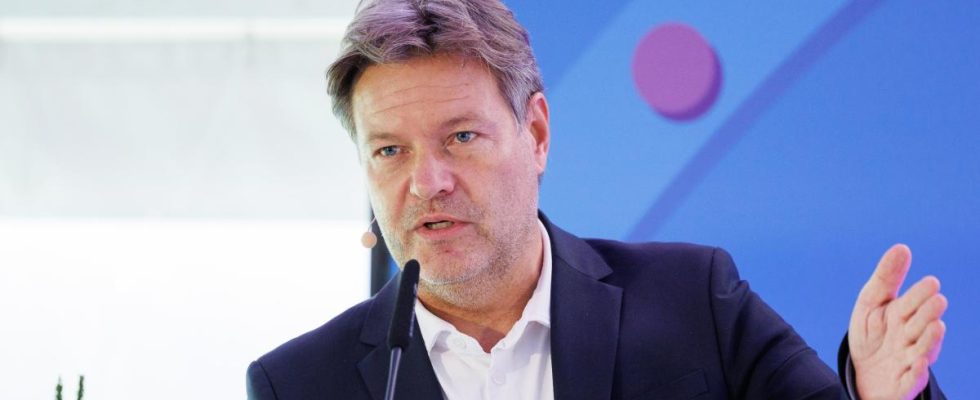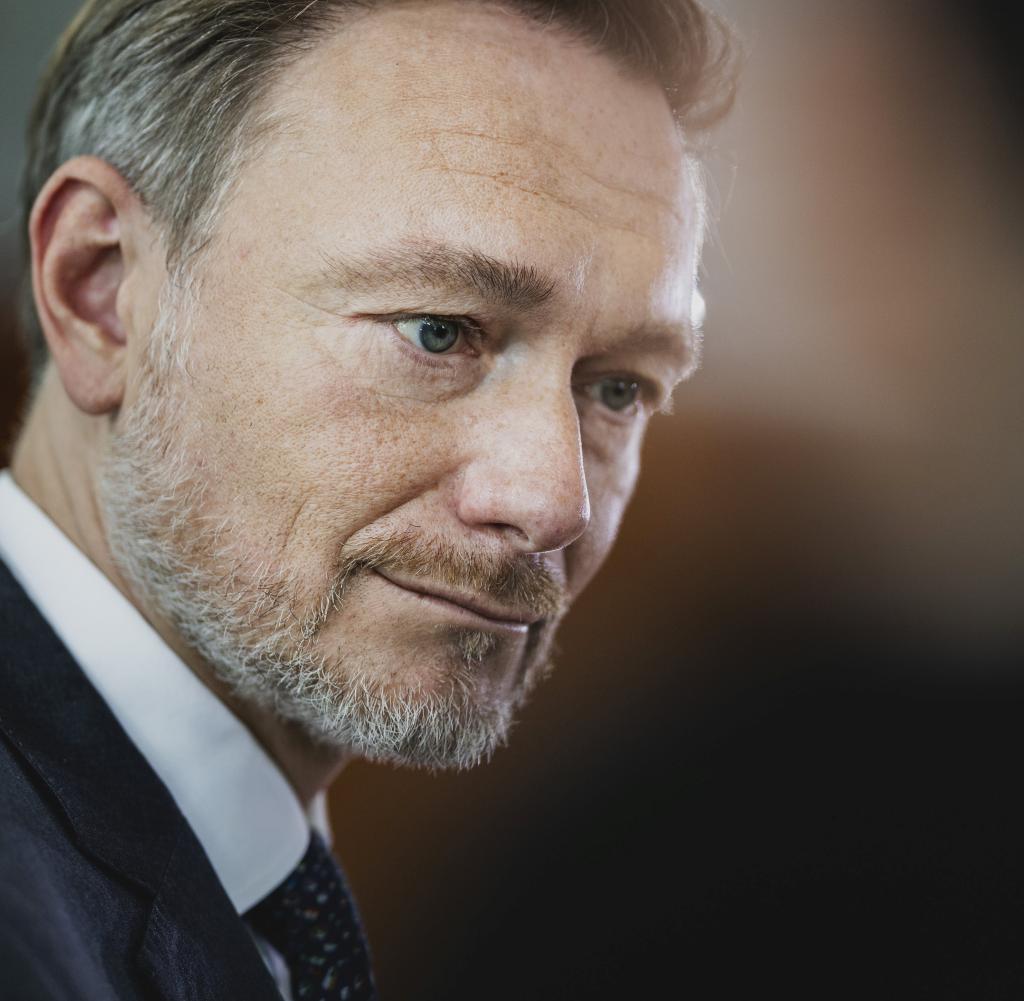Habeck wants to subsidize industry and loosen the debt brake
Traffic light falls to record low – Wagenknecht party with voter potential
If there were a federal election on Sunday, according to the Insa survey, only one in three people would vote for the SPD, Greens or FDP. Social Democrats and Liberals lose out again. The Union benefits from the weakness of the traffic lights. More than one in four voters can imagine voting for a Wagenknecht party.
In a new industrial strategy that Economics Minister Habeck presented today, a lot of money is to be invested in the expansion of rails and roads, power grids and renewable energies. The large sums are likely to lead to a dispute with Finance Minister Lindner.
bEconomics Minister Robert Habeck (Greens) is planning an industrial policy that is strongly geared towards state support and wants to loosen the debt brake to achieve this. “We want to maintain Germany as a strong industrial location in all its diversity,” explained Habeck on Tuesday when presenting a strategy paper from his ministry. Previously, the “South German newspaper“ reported.
The energy-intensive raw materials industry should also continue to be present. The industry is not only economically important, but also “makes a decisive contribution to the social cohesion of our society and also to its democratic stability,” explained Habeck. It is part of the country’s identity.
The concept paper refers to the changes, particularly due to the corona pandemic and the Russian attack on Ukraine: supply chains such as the one to China proved to be unstable, and dependencies on individual players such as Russia in energy issues were major disadvantages.
“If we diversify value chains and at the same time maintain and rebuild value creation in Germany and Europe, this will make us more independent of autocracies in an increasingly uncertain world,” argues Habeck.
Lots of investments in renewable energy and infrastructure
A lot of money must therefore be invested: for the expansion of renewable energies, the electricity grid and the hydrogen industry, the renovation of rails, bridges and roads and tax incentives for investments. According to “SZ”, Habeck also committed himself to new technologies for storing CO₂ in underground deposits in the paper, which are viewed very critically by large parts of his own party.
In its strategy, the Ministry of Economic Affairs is once again in favor of a “bridge electricity price”: for energy-intensive companies that compete internationally, the electricity price should be subsidized by the state until electricity prices have fallen again due to sufficient production from renewable sources. The coalition partner FDP rejects this, and Chancellor Olaf Scholz (SPD) is also skeptical.
Habeck rejects those who, in the course of the debate about this proposal, advocate not artificially keeping energy-intensive industries in Germany. According to the paper, glass, cement and paper will continue to be produced in Germany in the long term, even if the conditions for producing cheap electricity are relatively poor.
A conflict with the coalition partner FDP is also already foreseeable on the question of financing, because Habeck is questioning the debt brake, which FDP leader Christian Lindner in particular insists on compliance with. “Our financial constitution emerged in times that were still characterized by market-dominated globalization and significantly less geopolitical tensions,” says the short version of the paper. “As a country, we must discuss how these rules can be adapted to the new realities in the next legislative period at the latest.”


